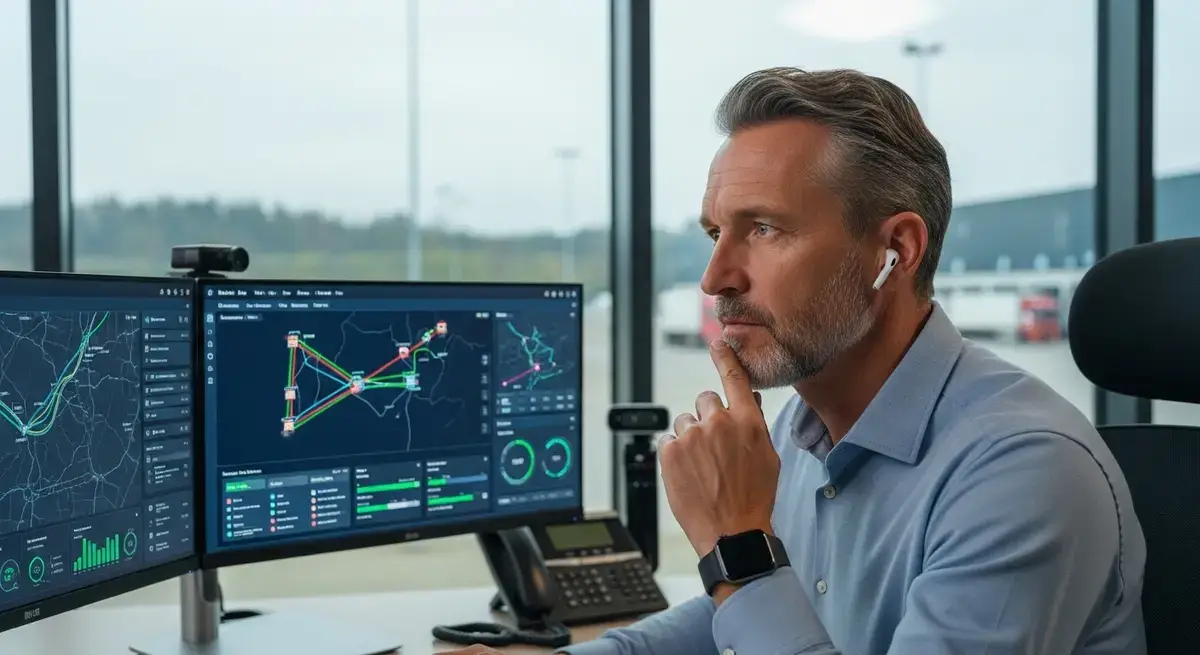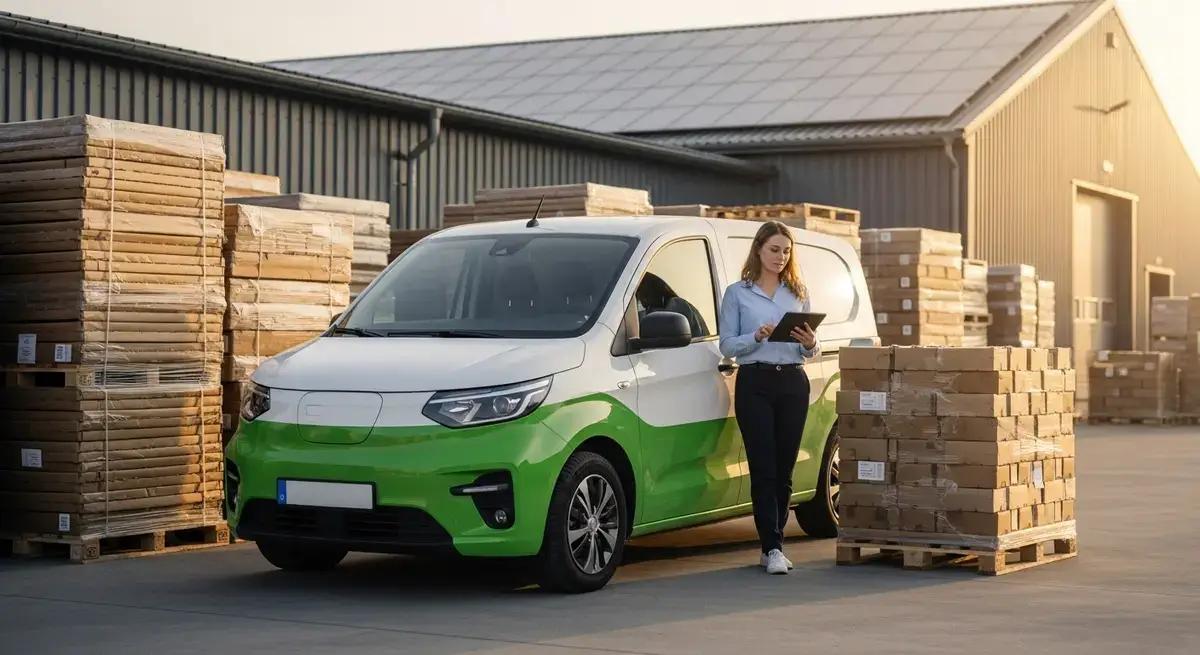
The role of IoT in modern fleet management
Discover how IoT is revolutionizing fleet management with real-time tracking, predictive maintenance, and fuel optimization. Boost efficiency, safety, and cost savings with smart connected fleets.
How IoT is Revolutionizing Modern Fleet Management
The Internet of Things (IoT) is reshaping industries worldwide, and fleet management is no exception. By connecting vehicles, sensors, and management systems, IoT is transforming how fleets operate—making them smarter, safer, and more cost-efficient. This technology empowers fleet managers with real-time insights and predictive tools that drive better decisions and smoother operations.
Unlocking the Power of IoT in Fleet Operations
What Exactly is IoT?
At its core, the Internet of Things connects everyday devices—like vehicles and sensors—to the internet, allowing them to collect and share data seamlessly. With the number of IoT devices expected to soar from 35 billion in 2021 to 75 billion by 2025, this technology is expanding at an unprecedented pace, fueling innovation across sectors.
The Essentials of Fleet Management
Fleet management involves overseeing a company’s vehicles, handling everything from routing and maintenance to regulatory compliance. As transportation demands grow, the global fleet management market is projected to hit $16.86 billion by 2025, growing at a rapid 20.8% CAGR—highlighting the urgent need for smarter fleet solutions.
Game-Changing IoT Features Driving Fleet Success
Real-Time Vehicle Tracking for Instant Visibility
Thanks to IoT-powered GPS and RFID technologies, fleet managers gain instant access to vehicle locations and performance data. This real-time tracking is a game-changer for route optimization, timely deliveries, and operational transparency.
Predictive Maintenance That Cuts Downtime
IoT enables fleets to move from reactive to proactive maintenance. By continuously monitoring vehicle health, managers can predict and fix issues before they cause breakdowns. Studies show a 35% drop in unexpected downtime with IoT-driven maintenance—saving time and money.
Boosting Fuel Efficiency and Cutting Costs
Fuel expenses can be a major budget item, but IoT helps optimize consumption. For example, Y.Share’s IoT implementation saved an astounding 9.5 million liters of fuel, translating to nearly 20% cost savings. Fuel monitoring and driver behavior insights make every drop count.
Seamless Connectivity and Smarter Fleet Control
Reliable Networks Keep Fleets Connected
Uninterrupted connectivity is critical for real-time data flow. Cellular and satellite networks, supported by platforms like Emnify’s IoT SuperNetwork, ensure fleets stay connected regardless of location. This reliable access to data drives smoother, more informed fleet operations.
Centralized Platforms Simplify Management
By consolidating vehicle data into unified dashboards, fleet managers can monitor performance effortlessly. Centralized platforms enhance decision-making and streamline complex logistics tasks, saving valuable time.
Elevating Safety and Ensuring Compliance
Automation Minimizes Human Error
With human factors causing 90% of accidents, automation through IoT brings much-needed safety improvements. Devices like electronic logging devices (ELDs) not only enforce regulatory compliance in North America but also reduce risks by tracking driver hours and behaviors.
Protecting Drivers and Cargo in Real Time
IoT systems send immediate alerts for risky driving or vehicle issues, allowing quick interventions. This proactive approach safeguards both drivers and cargo, preventing accidents and costly damage.
Real Success Stories and What’s Next in IoT Fleet Management
How Leading Companies Benefit from IoT
Companies like Safecube have partnered with logistics firms to integrate IoT tracking solutions, unlocking new levels of efficiency and control. These real-world examples prove the tangible benefits of embracing IoT technology.
The Future: AI Meets IoT for Smarter Fleets
The next frontier lies in blending AI and machine learning with IoT data. This powerful combination will provide predictive analytics that anticipate challenges, optimize routes dynamically, and enhance safety protocols—ushering in a new era of intelligent fleet management.
The impact of IoT on fleet management is profound and far-reaching. By harnessing connected technologies, fleet operators can transform their operations—cutting costs, improving safety, and boosting efficiency. As IoT continues to evolve, those who embrace its potential will lead the way in creating smarter, more responsive fleets ready for the future.

Nina Roth
Nina teaches that fitness is about long-term health, not just aesthetics. She specializes in improving movement quality, building practical strength, and eliminating chronic pain, helping people feel better and move freely in their daily lives.
More Related Posts

Key trends in sustainable and green logistics
Discover how eco-friendly practices are revolutionizing logistics with green shipping corridors, electric vehicles, AI-driven efficiency, and sustainable packaging—driving a greener future in 2024 and beyond.

The role of IoT in modern fleet management
Discover how IoT is revolutionizing fleet management with real-time tracking, predictive maintenance, and fuel optimization. Boost efficiency, safety, and cost savings with smart connected fleets.

How to build a resilient supply chain for your business
Discover proven strategies to build a resilient supply chain that adapts to disruptions, leverages AI and IoT, and fosters flexibility—ensuring your business thrives amid uncertainty.

The future of last-mile delivery services
Last-mile delivery is evolving fast, driven by soaring consumer demands for speed, flexibility, and sustainability. AI, drones, and green logistics are reshaping how packages reach your doorstep efficiently.
